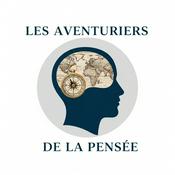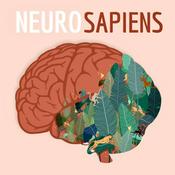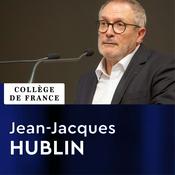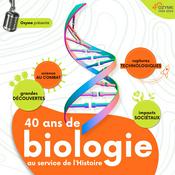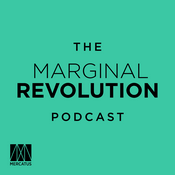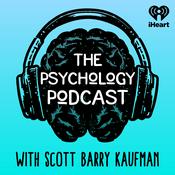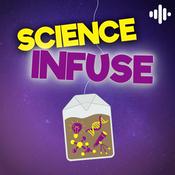8 épisodes

The 500ms Dash—Nikhil Gupta, VAPI
07/4/2025 | 43 min
Nikhil Gupta is the cofounder and CTO of VAPI. He’s been in the trenches building and scaling one of the biggest voice platforms in the world.On this episode, he explains how VAPI aims to create a voice-default future where we talk to all our computers—and goes deep into every step of VAPI’s voice pipelines and the technical challenges along the way.Some highlights:☎️ Massive scale: VAPI has processed 44 million voice calls on their platform, growing from a COVID-era one-click Zoom meeting button to a full voice infrastructure company used by thousands of developers.⚡️ Latency matters: Voice AI needs to respond within 500 milliseconds to feel natural to humans. That means cleaning audio, detecting when users are done speaking, transcribing text, generating responses, converting to speech, and handling interruptions—all within a fraction of a second.🗣️Voice-first future: Nikhil is betting a future where voice becomes our default interface with all computing systems.If you’ve ever wondered how voice API actually works—this is the episode for you. Chapters00:00 - Introducing VAPI04:42 - Pivoting through COVID05:42 - ChatGPT existential crisis08:33 - Technical challenges of voice12:42 - Anatomy of a voice call14:46 - Knowing when someone is done speaking18:37 - Routing to the fastest model22:07 - Knowledge and context injection26:47 - The text-to-speech bottleneck31:14 - Handling interruptions gracefully33:43 - The 500-millisecond barrier36:56 - The DNS latency discovery39:25 - Scaling the team and what's nextLinks* VAPI * Nikhil Gupta on LinkedIn* VAPI on Product Hunt* Stratechery by Ben Thompson - Recommended reading from Nikhil This is a public episode. If you would like to discuss this with other subscribers or get access to bonus episodes, visit www.smartspeakers.fm

Your AI interviewer will see you now—Varun Khurana, Wayfaster
31/3/2025 | 39 min
Varun Khurana wants every job candidate to have the best possible chance to prove themselves for every job they apply to. He’s been in the trenches building with voice AI for 2+ years, and had some great nuggets to share:* 💬 How Wayfaster started: “Wayfaster started out as a way to interview your entire pipeline in a couple seconds... the only way you can really do that is using voice AI."* ⛔️Why AI video avatars are a no-go: "We tried avatars and every candidate hated it... I think it just makes candidates feel dumb. It's just like, why am I talking to an avatar? Like how stupid do you think I am?"* 📑How AI interviews give candidates a chance: "Candidates have just gotten really accustomed to getting this default auto-reject email... At least here, I know that if I do a good job on the interview, I have a shot at this opportunity."* 🐻Why he’s bearish consumer voice AI: "I'm actually a little more bearish on the consumer voice AI use cases. I like voice AI in constrained environments, like B2B, there's an amount of intent... I don't think people are going to want to be talking to their phones all the time."Hope you enjoy the conversation! As always you can subscribe at https://smartspeakers.fm.Chapters0:00 Welcome and intro1:32 First big AI aha moment5:08 Career background7:40 Exploring startup ideas10:34 How WayFaster was born14:21 Initial target markets16:45 Candidate response to AI interviews19:07 Benefits for recruiters and candidates23:30 How AI is transforming recruiting26:51 The two-sided recruiting game31:05 Why Varun is bearish on consumer voice AI35:09 Future generations and AI adoption38:09 Content recommendations and closingLinks* WayFaster Website: wayfaster.com* Varun Khurana on LinkedIn: https://www.linkedin.com/in/vkhurana2/* South Park Commons* Deepgram* Charles Rubenfeld's Newsletter This is a public episode. If you would like to discuss this with other subscribers or get access to bonus episodes, visit www.smartspeakers.fm

The pipeline for voice—Kwindla Hultman Kramer, CEO of Daily
24/3/2025 | 57 min
Much of my childhood was spent in my basement, dialing up other people’s computers to trade messages and play games.Kwin Kramer from Daily remembers that time, too—and says today's voice AI moment feels just like those early internet days. That sense of endless possibilities is back.His open-source project PipeCat has become the standard toolkit for voice agents. What began as an experiment now powers voice AI for OpenAI, Google DeepMind, and countless startups, making conversations feel natural and responsive.Some highlights:* That early internet feeling is back: "1995 to 1999 felt a certain way. It never felt that way again until 2023 to 2025."* GPT-4 transformed Daily's business by removing a key bottleneck: "Previously you needed two humans for a conversation. Now you only need one, maybe not even that."* Voice AI's killer feature? Latency matters: "If response times are long, you're in that uncanny valley where people get uncomfortable."* Kwin's bold prediction: "We're all going to have friends in our group chats that aren't human because LLMs are actually really entertaining."Hope you enjoy it as much as we did.LinksDaily: https://daily.co/PipeCat: https://pipecat.ai/Kwin on Twitter: https://twitter.com/kwindlaChapters0:00 Intro2:02 First AI aha moment5:43 MIT Media Lab beginnings9:05 BBS and door games15:26 The AllAfrica journey18:54 Starting Daily21:13 COVID's impact on WebRTC22:36 GPT-4 transformation31:26 Building voice for LLMs35:17 PipeCat's key challenges44:10 The future of speech-to-speech47:10 Voice AI adoption trends52:34 Vibe coding revolution56:11 What's next for PipeCat This is a public episode. If you would like to discuss this with other subscribers or get access to bonus episodes, visit www.smartspeakers.fm

The craft behind voice AI magic with Tom Shapland
17/3/2025 | 45 min
This week, Tom Shapland shares his journey from agriculture tech to founding Canonical, a tool that helps voice AI developers understand and improve conversations by mapping call stages.Tom has deep experience in the voice world—we loved this conversation and we’re sure you will too!Linkshttps://canonical.chathttps://x.com/Tom_Shaplandhttps://www.linkedin.com/in/tom-shapland-b4494212/Chapters0:00 - Intro1:05 - Welcome and first AI moment3:03 - Computer vision for thirsty plants5:50 - Explaining AI to farmers7:52 - Hardware is hard8:31 - Non-VC shaped business struggles16:51 - Starting a new company19:41 - From metrics to conversation stages22:42 - Voice AI evolution26:40 - Balancing determinism and freedom29:53 - Who uses Canonical and when32:39 - Don't make your agent spell anything35:52 - Zero to 80% is easy, production is hard39:28 - Future of voice AI adoption42:21 - Book recommendations and closing This is a public episode. If you would like to discuss this with other subscribers or get access to bonus episodes, visit www.smartspeakers.fm

Olivia Moore, a16z: Voice as a wedge
10/3/2025 | 55 min
Voice AI is having its moment, but pretty soon every company will be a voice company.Olivia Moore is the author of a16z’s market report on voice AI agents, which is a must-read if you’re interested in the space. She’s an amazing thinker and we cover a lot in this conversation, including:* Olivia's thesis that Voice AI is in it’s “internet in 1999” moment* The "wedge" strategy: using Voice AI to get in the door before transforming broader business operations* How recruiting became a surprising early adopter of Voice AI (candidates actually prefer it)* Voice AI's unique ability to handle compliance and stay on-script in regulated industries* Shifting from per-minute pricing to transaction-based fees or success metrics* Why big tech platforms (OpenAI, Google) won't dominate vertical-specific voice applicationsLinks* Olivia on X: https://x.com/omooretweets (must-follow!)* Her market report on voice AI agents* Dr Sbaitso emulator - this was packaged with new Sound Blaster sound cards! Strange stuff.Chapters0:00 Intro and welcome1:24 Olivia's first AI "aha" moments 3:42 Coolest non-voice AI tools6:29 How Olivia got into the Voice AI space10:03 From consumer to enterprise13:50 DMV-bot16:22 Voice AI as a wedge20:57 Traction in the voice market24:24 Voice AI for recruiting28:59 Why AI doesn't go off-script31:03 Better experiences for candidates and customers33:24 The future of call centers37:02 Bear cases for Voice AI41:25 Open problems44:29 Pricing47:12 Working with twin sister Justine50:11 Three things Olivia's excited about Subscribe and listen: https://smartspeakers.fm This is a public episode. If you would like to discuss this with other subscribers or get access to bonus episodes, visit www.smartspeakers.fm
Plus de podcasts Sciences
Podcasts tendance de Sciences
À propos de Smart Speakers Podcast
Écoutez Smart Speakers Podcast, Les Aventuriers de la pensée (sciences sociales : sociologie, anthropologie, psychologie sociale) ou d'autres podcasts du monde entier - avec l'app de radio.fr
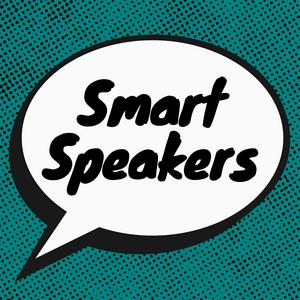
Obtenez l’app radio.fr gratuite
- Ajout de radios et podcasts en favoris
- Diffusion via Wi-Fi ou Bluetooth
- Carplay & Android Auto compatibles
- Et encore plus de fonctionnalités
Obtenez l’app radio.fr gratuite
- Ajout de radios et podcasts en favoris
- Diffusion via Wi-Fi ou Bluetooth
- Carplay & Android Auto compatibles
- Et encore plus de fonctionnalités


Smart Speakers Podcast
Téléchargez l’app,
Écoutez.
